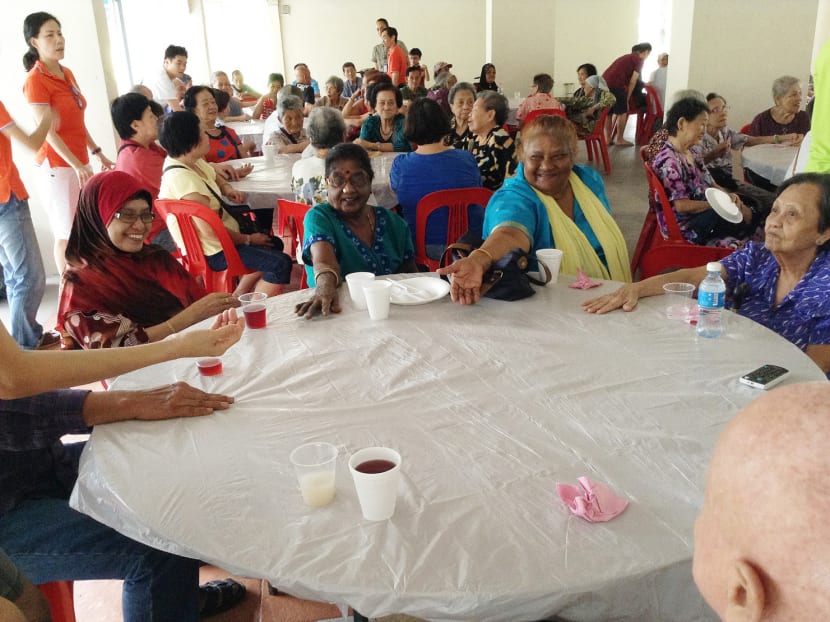Lessons learnt from spending time with elderly
What happens when 100 elderly people are pitted against one another? We did that recently and brought back the nostalgic past.

Our elderly form the heritage of our families and community, and an affirming smile or pat on the shoulder goes a long way, like a game of Oh-Peh-Som. Photo: Wan Kwong Weng
What happens when 100 elderly people are pitted against one another? We did that recently and brought back the nostalgic past.
Memories flowed back of how best to win in the low-cost flick-the-bottle-cap game and the animal board game where the mouse is king.
In a trivia game, they were quick on when the first day of the coming Chinese New Year would be and just as witty on who the current Prime Minister is.
Answer: Son of Mr Lee Kuan Yew.
Most simplistic of all was that evergreen O-Peh-Som game, the vernacular version of Scissors, Paper, Stone. They erupted into a joyous chorus.
In the end, all were winners as old tricks became new.
Mr J told me he could discover his opponent’s next move from his pre-positioned fingers. Madam Y was more hilarious, half-laughing and half-speaking, excited that she was able to play what was her favourite game.
Having spent the past three years doing quarterly lunches for 100 of the elderly in Toa Payoh East, I have learnt precious lessons.
First, some of us visit our elderly only during festive seasons and birthdays. Instead, we should set aside specific time slots and not let other distractions take root.
This is like the big rocks and sand experiment, courtesy of the book The 7 Habits of Highly Effective People. If we tackle the big rocks first, such as visiting our elderly, the sand will be secondary. Let us get our priorities right.
Second, it seems almost inevitable that the elderly gravitate towards self-reproach or repetitive thoughts, especially when they feel they are slowing down or no longer as agile.
This does not mean, however, that we cannot be positive about what they can do or have done. The focus should be on their abilities.
Third, each elderly person has his or her own history. It is interesting to learn more about their life choices and how they have overcome difficulties.
One elderly person I met said he used to be a good basketball player in his youth. We had a bouncing ball competition and he emerged as the top player, brimming with pride and self-confidence.
Above all, our elderly form the heritage of our families and community. Isolation and inactivity are known to lead to depression and dementia. An affirming smile or pat on the shoulder goes a long way, like the game of Oh-Peh-Som.
The writer has been volunteer chairman of the Adventist Home for the Elders since 2008.






